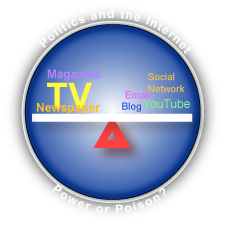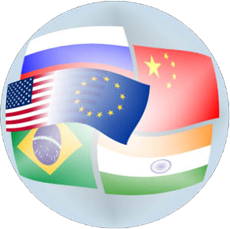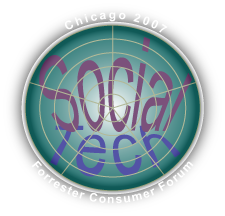Geography 3.0, What It Is and What It Means predicts a new synthesis in the Knowledge Economy—fast forward to the past—Plus, the fire
 Noodles are largely driven by intuition and holistic mental doodling, and this one has been simmering a long time*. I believe that there is profound meaning in virtual and literal “mobility,” and I’ll explore its significance in terms geography and human relationships. Geography has always had a profound impact on how humans have lived and the organizations in which we have lived, and when its meaning shifts, our lives are transformed. This is of paramount importance because human relationships are currently transitioning from geography-based to interest-based. Many governments and businesses harbor business rules that assume geography-based relationships, and, unless they appreciate the shift to interest-based relationships, they will experience disruption’s spin cycle. Lose a turn. Don’t pass go ,^) Noodles are largely driven by intuition and holistic mental doodling, and this one has been simmering a long time*. I believe that there is profound meaning in virtual and literal “mobility,” and I’ll explore its significance in terms geography and human relationships. Geography has always had a profound impact on how humans have lived and the organizations in which we have lived, and when its meaning shifts, our lives are transformed. This is of paramount importance because human relationships are currently transitioning from geography-based to interest-based. Many governments and businesses harbor business rules that assume geography-based relationships, and, unless they appreciate the shift to interest-based relationships, they will experience disruption’s spin cycle. Lose a turn. Don’t pass go ,^)
Before exploring how these things will unfold in Part II, let’s review three geographies and four economies here in Part I…
[…]
Web 2.0 Pureplays vs. Enterprise Vendors: A Real Battle compares the value propositions of Web 2.0 pureplays and traditional vendors.

Dennis Howlett, writing in the Irregular Enterprise on 19 March, made the case that enterprise IT just didn’t get social networking and start-ups were going to make some serious hay by bypassing IT and selling right into the business. He had also included a YouTube video in which CIOs commented on the question, “Is Enterprise 2.0 hype or happening?” which provided some light-hearted snippets about a profound subject. There was some valuable information in the post, but I found that it was approaching the issue from within the old paradigm (“battle on two fronts”), and therefore largely left money of the table. I’ll peel the onion here, so get ready to well up.
[…]
IBM Drives Enterprise Adoption of Social Networks with New Enterprise Adaptability Practice offers reportage on the launch of IBM’s enterprise adaptability practice
Shades of Web 3.0—The Googlization of Knowledge Management—Resetting the Adoption Clocks
 Tuesday IBM announced a new services practice, “Enterprise Adaptability” services, which aims to help global companies realize a quantum leap in workforce agility and collaboration by facilitating their adoption of social networks and Web 2.0. As predicted in the Year in Review—2007, social networks and Web 2.0 are being embraced in the enterprise B2B arena this year, and this announcement shows that adoption is right on ahead of schedule. Enterprise 2.0 is reaching the mainstream, and companies that do not aggressively adopt enterprise 2.0 will experience serious competitive threats within three years. Tuesday IBM announced a new services practice, “Enterprise Adaptability” services, which aims to help global companies realize a quantum leap in workforce agility and collaboration by facilitating their adoption of social networks and Web 2.0. As predicted in the Year in Review—2007, social networks and Web 2.0 are being embraced in the enterprise B2B arena this year, and this announcement shows that adoption is right on ahead of schedule. Enterprise 2.0 is reaching the mainstream, and companies that do not aggressively adopt enterprise 2.0 will experience serious competitive threats within three years.
IBM’s announcement validates enterprise social networking, but more significant is their rationale for launching the practice: their clients are struggling with adjusting to the Knowledge Economy, globalization and decreasing margins, and Enterprise Adaptability prescribes collaboration and innovation to cure legendary agility gaps. As explained below, Enterprise Adaptability smells like breakthrough, although it’s barely out of the oven. To look behind the curtain, I caught up with […]
India Trade Minister Draws Chicago-India Parallels at Executives’ Club offers coverage of Shri Kamal Nath’s Chicago presentation. Key themes: new global economic architecture presages economic realignment and thinking beyond the obvious to tap emerging opportunities.
 Illinois leaders were addressed by His Excellency Shri Kamal Nath, Minister of Commerce and Industry, Republic of India. True to form, His Excellency struck chords of transformation, partnership, common interests and harmony at the lunch held in his honor at the University Club on 19 February 2008. Attending were Chicago Mayor Richard M. Daley, Mr. Rajinder Bedi, Managing Director of the Illinois Office of Trade and Investment, The Honorable Susan Schwab, U.S. Trade Representative, Craig S. Donohue, Chief Executive Officer, CME Group and John Estey, President & Chief Executive Officer, SC Electric Company. Illinois leaders were addressed by His Excellency Shri Kamal Nath, Minister of Commerce and Industry, Republic of India. True to form, His Excellency struck chords of transformation, partnership, common interests and harmony at the lunch held in his honor at the University Club on 19 February 2008. Attending were Chicago Mayor Richard M. Daley, Mr. Rajinder Bedi, Managing Director of the Illinois Office of Trade and Investment, The Honorable Susan Schwab, U.S. Trade Representative, Craig S. Donohue, Chief Executive Officer, CME Group and John Estey, President & Chief Executive Officer, SC Electric Company.
Reading between the lines, the U.S. and India stand at a significant turning point: India’s impressive economic growth is a significant element of the ongoing redistribution of global economic power—which holds excellent opportunities for U.S. businesses and workers that are looking for it.
[…]
Bank Panic in Second Life Prompts Battlefield Promotion of Regulators reveals interesting parallels between physical and virtual worlds—it’s real money, after all.

“What? I can’t go to the grocery store! My bank’s automated teller machine refuses to dispense cash, and I’m planning a big cook-out tonight!” What’s an avatar to do?
It turns out that an inworld bank failure this summer cost residents about $750,000 USD and led to a run on Second Life banks, which eventually precipitated intervention by the highest authority available, the virtual world’s creator, Linden Labs. But the root cause may well have been LL’s earlier intervention in the economy by banning gambling on the site.
[…]
Web 2.0 Impact on 2008 U.S. Presidential Election Declared Minimal at Executives’ Club, but cantankerous subtext hints at possible monkey wrench—democratic race in spotlight.
 The Executives’ Club of Chicago fielded an expert panel to brief Midwest executives on Web 2.0’s current and likely impact on one of the most watched U.S. elections in recent history. Marie Cocco, a renowned political columnist, Peter Greenburger, Director of Google’s Elections & Issue Advocacy Team, and Alan Webber, Senior Analyst of Forrester Research brought to bear diverse perspectives on the question at the event, which took place at The University Club on January 31, 2008. The Executives’ Club of Chicago fielded an expert panel to brief Midwest executives on Web 2.0’s current and likely impact on one of the most watched U.S. elections in recent history. Marie Cocco, a renowned political columnist, Peter Greenburger, Director of Google’s Elections & Issue Advocacy Team, and Alan Webber, Senior Analyst of Forrester Research brought to bear diverse perspectives on the question at the event, which took place at The University Club on January 31, 2008.
They produced a logical conclusion, namely that Web 2.0 was a force in the making but that it would probably not be a decisive factor this year. The session was graciously co-hosted by Communications Committee Co-Chairs David Prosperi, Vice President Global Public Relations, AON and David Blake, Publisher of Crain’s Chicago Business.
As usual, I will share my notes of speakers’ remarks before adding my between the lines analysis and conclusions. As an […]
Year in Review 2007—Editor’s Choice of the Global Human Capital Journal
 As I reflect on 2007 and create strategy for 2008, several macro-trends come into sharp relief, and I believe that some of them might be helpful to you as you conduct your own planning. As always, I focus on emerging phenomena because they are areas in which disruption and discontinuous change are acting on markets, thereby elevating threats and opportunities. Helping leaders to create strategy to manage the risk of unusual market developments is the focus of my consulting practice. As I reflect on 2007 and create strategy for 2008, several macro-trends come into sharp relief, and I believe that some of them might be helpful to you as you conduct your own planning. As always, I focus on emerging phenomena because they are areas in which disruption and discontinuous change are acting on markets, thereby elevating threats and opportunities. Helping leaders to create strategy to manage the risk of unusual market developments is the focus of my consulting practice.
In 2007 it became clear to me that we were entering a profound social transformation that would produce an unimaginable degree of change. Unlike the technology-precipitated change that I’ve been helping people with since the 1990s, technology is shifting to the background now, and pervasive social change is taking the stage. Look for disruption in all areas affected by how people connect, communicate, purchase and collaborate: business, politics, community and leisure. Moreover, these changes are completely global with all the variations that engenders.
I can’t tell […]
Globalization’s 21st Century Makeover explains how “emerging” market companies are rapidly becoming global players—to whit, new owners for Jaguar and Land Rover.
 Emerging countries have long been regarded by globalizers as targets for exploitation, but 21st century market forces are turning legacy thinking on its head, which produces disruption and its sibling, opportunity. Emerging countries have long been regarded by globalizers as targets for exploitation, but 21st century market forces are turning legacy thinking on its head, which produces disruption and its sibling, opportunity.
The conventional thinking goes that emerging countries like Brazil, Russia, India and China (BRIC) have talented knowledge/human capital resources that can be tapped in outsourcing and offshoring arrangements. Moreover, these workers’ employment in high value knowledge jobs creates a new consumer class among large populations. Emerging countries’ rapidly growing consumer markets stand in sharp contrast to developed countries’, which are flat or shrinking. China and India have been relaxing restrictions on foreign ownership, which has increased FDI, especially in China, enabling foreign companies to invest in and buy BRIC companies.
However, the big story in 2007 was the opposite:
[…]
How Social Tagging Changes the Economics of Ecommerce was a geeky session that explained how a potent mix of “people like me” navigation and digital leverage can drive sales and profits + The secret to emerging markets?
 The Global Human Capital Journal’s coverage of the Forrester Consumer Forum 2007 continues with this session on social tagging. Before your eyes glaze over, bear with me and learn how this simple, revolutionary social technology can help your customers to help your business. Forrester’s Sarah Rotman Epps moderated a discussion with Brian Rosenblat, Online Retail Industry Lead, Endeca Technologies and Jay Shaffer, Vice President Marketing, PowerReviews, who represented companies that offer social tagging solutions, and they all shared numerous examples. The Global Human Capital Journal’s coverage of the Forrester Consumer Forum 2007 continues with this session on social tagging. Before your eyes glaze over, bear with me and learn how this simple, revolutionary social technology can help your customers to help your business. Forrester’s Sarah Rotman Epps moderated a discussion with Brian Rosenblat, Online Retail Industry Lead, Endeca Technologies and Jay Shaffer, Vice President Marketing, PowerReviews, who represented companies that offer social tagging solutions, and they all shared numerous examples.
This was one of the most “actionable opportunity” sessions of the conference: tagging is a relatively unknown, simple, yet transformational Web 2.0 phenomenon that will gain traction in 2008 and explode in 2009. If you aren’t doing it, you will be at a significant disadvantage to your competitors who do.
The Global Human Capital Journal published the overall conference […]
A Paradoxical Proposition, Are People More Real Where They Live Their Dreams?—Zapped by Conventional Thinking
 Gaming and virtual worlds like Second Life have been a hot topic due to their novelty and, where gaming is concerned, their Gen X and Gen Y demographics. However, early adopter marketers who have flocked to virtual worlds to create presences there have often been disappointed. Forrester’s Paul Jackson is a long-time follower of gaming and virtual worlds, and he gave a fascinating and valuable session on the status and best practices for how marketers can approach this new medium. He also gave a rough ROI picture of investing. Just like anything, if you approach virtual worlds with appropriate goals, you can benefit significantly. Gaming and virtual worlds like Second Life have been a hot topic due to their novelty and, where gaming is concerned, their Gen X and Gen Y demographics. However, early adopter marketers who have flocked to virtual worlds to create presences there have often been disappointed. Forrester’s Paul Jackson is a long-time follower of gaming and virtual worlds, and he gave a fascinating and valuable session on the status and best practices for how marketers can approach this new medium. He also gave a rough ROI picture of investing. Just like anything, if you approach virtual worlds with appropriate goals, you can benefit significantly.
An Overview of Games and Virtual Worlds
Jackson began with a history of virtual worlds and gaming, which are both inherently social (and usually sticky). Gaming began in the 1970s with multiuser Dungeons, and many early games were played on the VAX. The 1990s introduced 3-D graphics and VRML as well as massively multiuser games like Lineage, EverQuest and the World […]
|
|
 Noodles are largely driven by intuition and holistic mental doodling, and this one has been simmering a long time*. I believe that there is profound meaning in virtual and literal “mobility,” and I’ll explore its significance in terms geography and human relationships. Geography has always had a profound impact on how humans have lived and the organizations in which we have lived, and when its meaning shifts, our lives are transformed. This is of paramount importance because human relationships are currently transitioning from geography-based to interest-based. Many governments and businesses harbor business rules that assume geography-based relationships, and, unless they appreciate the shift to interest-based relationships, they will experience disruption’s spin cycle. Lose a turn. Don’t pass go ,^)
Noodles are largely driven by intuition and holistic mental doodling, and this one has been simmering a long time*. I believe that there is profound meaning in virtual and literal “mobility,” and I’ll explore its significance in terms geography and human relationships. Geography has always had a profound impact on how humans have lived and the organizations in which we have lived, and when its meaning shifts, our lives are transformed. This is of paramount importance because human relationships are currently transitioning from geography-based to interest-based. Many governments and businesses harbor business rules that assume geography-based relationships, and, unless they appreciate the shift to interest-based relationships, they will experience disruption’s spin cycle. Lose a turn. Don’t pass go ,^)
 Tuesday IBM announced a new services practice, “Enterprise Adaptability” services, which aims to help global companies realize a quantum leap in workforce agility and collaboration by facilitating their adoption of social networks and Web 2.0. As predicted in the Year in Review—2007, social networks and Web 2.0 are being embraced in the enterprise B2B arena this year, and this announcement shows that adoption is right on ahead of schedule. Enterprise 2.0 is reaching the mainstream, and companies that do not aggressively adopt enterprise 2.0 will experience serious competitive threats within three years.
Tuesday IBM announced a new services practice, “Enterprise Adaptability” services, which aims to help global companies realize a quantum leap in workforce agility and collaboration by facilitating their adoption of social networks and Web 2.0. As predicted in the Year in Review—2007, social networks and Web 2.0 are being embraced in the enterprise B2B arena this year, and this announcement shows that adoption is right on ahead of schedule. Enterprise 2.0 is reaching the mainstream, and companies that do not aggressively adopt enterprise 2.0 will experience serious competitive threats within three years. Illinois leaders were addressed by His Excellency Shri Kamal Nath, Minister of Commerce and Industry, Republic of India. True to form, His Excellency struck chords of transformation, partnership, common interests and harmony at the lunch held in his honor at the University Club on 19 February 2008. Attending were Chicago Mayor Richard M. Daley, Mr. Rajinder Bedi, Managing Director of the Illinois Office of Trade and Investment, The Honorable Susan Schwab, U.S. Trade Representative, Craig S. Donohue, Chief Executive Officer, CME Group and John Estey, President & Chief Executive Officer, SC Electric Company.
Illinois leaders were addressed by His Excellency Shri Kamal Nath, Minister of Commerce and Industry, Republic of India. True to form, His Excellency struck chords of transformation, partnership, common interests and harmony at the lunch held in his honor at the University Club on 19 February 2008. Attending were Chicago Mayor Richard M. Daley, Mr. Rajinder Bedi, Managing Director of the Illinois Office of Trade and Investment, The Honorable Susan Schwab, U.S. Trade Representative, Craig S. Donohue, Chief Executive Officer, CME Group and John Estey, President & Chief Executive Officer, SC Electric Company. The Executives’ Club of Chicago fielded an expert panel to brief Midwest executives on Web 2.0’s current and likely impact on one of the most watched U.S. elections in recent history. Marie Cocco, a renowned political columnist, Peter Greenburger, Director of Google’s Elections & Issue Advocacy Team, and Alan Webber, Senior Analyst of Forrester Research brought to bear diverse perspectives on the question at the event, which took place at The University Club on January 31, 2008.
The Executives’ Club of Chicago fielded an expert panel to brief Midwest executives on Web 2.0’s current and likely impact on one of the most watched U.S. elections in recent history. Marie Cocco, a renowned political columnist, Peter Greenburger, Director of Google’s Elections & Issue Advocacy Team, and Alan Webber, Senior Analyst of Forrester Research brought to bear diverse perspectives on the question at the event, which took place at The University Club on January 31, 2008. As I reflect on 2007 and create strategy for 2008, several macro-trends come into sharp relief, and I believe that some of them might be helpful to you as you conduct your own planning. As always, I focus on emerging phenomena because they are areas in which disruption and discontinuous change are acting on markets, thereby elevating threats and opportunities. Helping leaders to create strategy to manage the risk of unusual market developments is the focus of my consulting practice.
As I reflect on 2007 and create strategy for 2008, several macro-trends come into sharp relief, and I believe that some of them might be helpful to you as you conduct your own planning. As always, I focus on emerging phenomena because they are areas in which disruption and discontinuous change are acting on markets, thereby elevating threats and opportunities. Helping leaders to create strategy to manage the risk of unusual market developments is the focus of my consulting practice. Emerging countries have long been regarded by globalizers as targets for exploitation, but 21st century market forces are turning legacy thinking on its head, which produces disruption and its sibling, opportunity.
Emerging countries have long been regarded by globalizers as targets for exploitation, but 21st century market forces are turning legacy thinking on its head, which produces disruption and its sibling, opportunity. The Global Human Capital Journal’s coverage of the Forrester Consumer Forum 2007 continues with this session on social tagging. Before your eyes glaze over, bear with me and learn how this simple, revolutionary social technology can help your customers to help your business. Forrester’s Sarah Rotman Epps moderated a discussion with Brian Rosenblat, Online Retail Industry Lead, Endeca Technologies and Jay Shaffer, Vice President Marketing, PowerReviews, who represented companies that offer social tagging solutions, and they all shared numerous examples.
The Global Human Capital Journal’s coverage of the Forrester Consumer Forum 2007 continues with this session on social tagging. Before your eyes glaze over, bear with me and learn how this simple, revolutionary social technology can help your customers to help your business. Forrester’s Sarah Rotman Epps moderated a discussion with Brian Rosenblat, Online Retail Industry Lead, Endeca Technologies and Jay Shaffer, Vice President Marketing, PowerReviews, who represented companies that offer social tagging solutions, and they all shared numerous examples. Gaming and virtual worlds like Second Life have been a hot topic due to their novelty and, where gaming is concerned, their Gen X and Gen Y demographics. However, early adopter marketers who have flocked to virtual worlds to create presences there have often been disappointed. Forrester’s Paul Jackson is a long-time follower of gaming and virtual worlds, and he gave a fascinating and valuable session on the status and best practices for how marketers can approach this new medium. He also gave a rough ROI picture of investing. Just like anything, if you approach virtual worlds with appropriate goals, you can benefit significantly.
Gaming and virtual worlds like Second Life have been a hot topic due to their novelty and, where gaming is concerned, their Gen X and Gen Y demographics. However, early adopter marketers who have flocked to virtual worlds to create presences there have often been disappointed. Forrester’s Paul Jackson is a long-time follower of gaming and virtual worlds, and he gave a fascinating and valuable session on the status and best practices for how marketers can approach this new medium. He also gave a rough ROI picture of investing. Just like anything, if you approach virtual worlds with appropriate goals, you can benefit significantly.